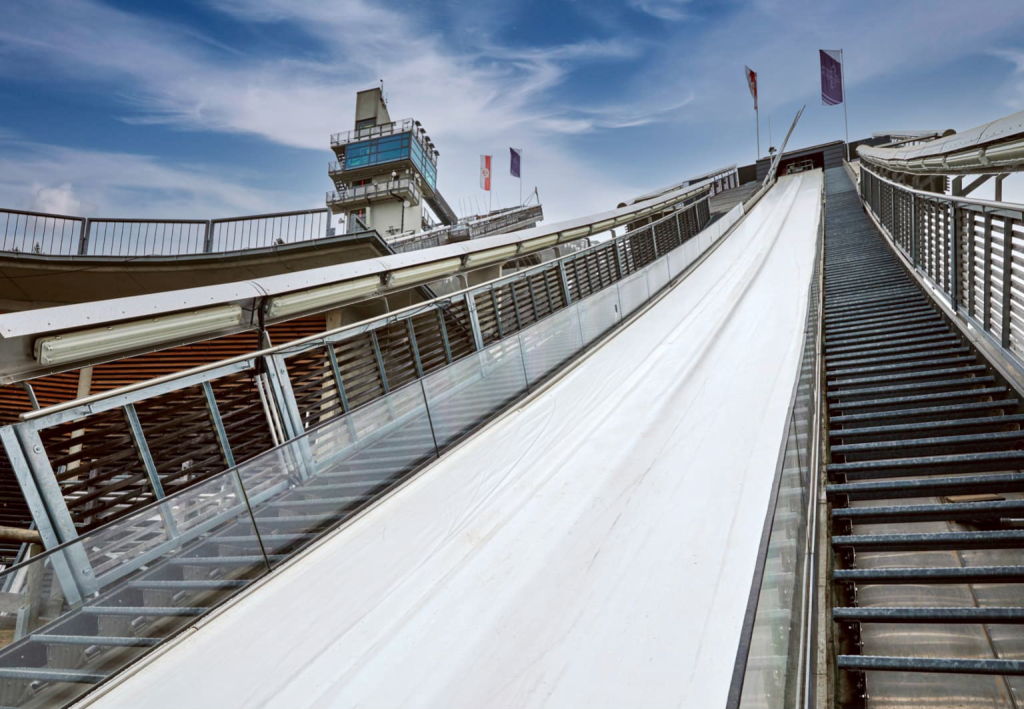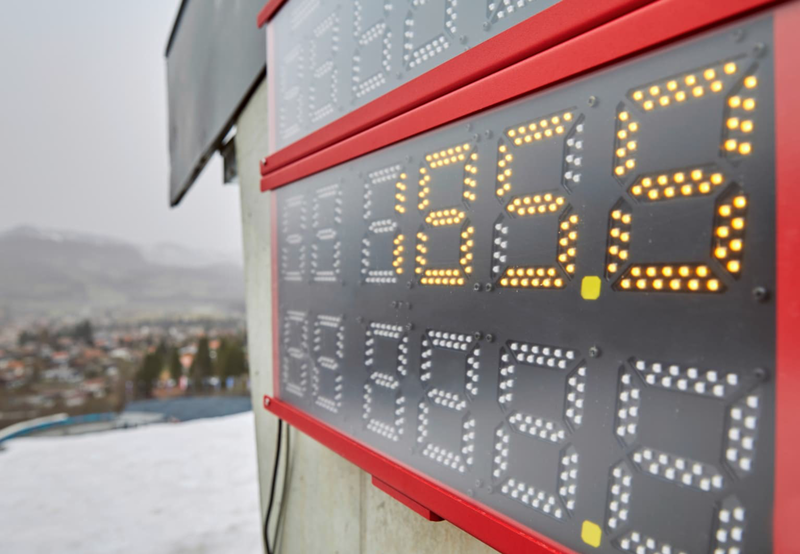Taking faith out of the leap
A team from ccc software gmbh and the Institute for Applied Training Science in Leipzig has developed a complex analysis system for coaches, athletes, and sports scientists. The system includes a camera or video system and speed measurement. Furthermore, ensuring that recorded data is immediately available for analysis. Ski jumping, a sport with major international events. It is known for its spectacular jumps, with participants reaching speeds of up to 108 kilometers per hour. Moreover, The Audi Arena Oberstdorf in Oberstdorf, Germany, has one of the largest ski jump ramps in the world, with a ramp size of 235 meters and a record of 242.5 meters. The jumping tower is 72 meters high, and the run-up length for jumpers is 118 meters with a run-up inclination of 38.7 degrees.
A variety of challenges
The length of a jump is measured from the edge of the jump-off platform to the point of landing. The athlete’s body and ski posture significantly influence the aerodynamics. To optimize jumping performance, ccc software gmbh and the Institute for Applied Training Sciences have developed a sophisticated solution for training optimization and competition management. The camera must be mounted parallel to the jumper and at flight-path height. However, the jumper is only parallel with the camera for a fraction of a second. The IAT, founded in 1992, supports around 1,000 athletes and their coaches from 19 summer and six winter sports. Aiming to identify and tap into Germany’s top athletes’ performance potential.

Automatic triggering of photoelectric barriers and cameras
IAT team developed a video analysis system for mobile use on ski jump ramps. The system would take speed measurements and recordings throughout the jump. Furthermore, providing training support and biomechanical analysis. Moreover, the system uses photoelectric barriers, triggers cameras, and controls the system with a PLC from Phoenix Contact. The coach or sports scientist can monitor the jump from a mobile client. Thus, receiving automatic lateral perspectives videos after 20 seconds. This allows immediate feedback and allows for better training and competitions.

Low cycle time of less than 0.5 milliseconds
The solution to short signal duration in ski jumpers requires seven cameras to trigger at the right time. With controller cycle times less than 0.5 milliseconds. Communication between controller and photoelectric barrier is crucial for editing video sequences. The PLC program must be set up for high speeds and weather resistance. Thus, complying with IP68 protection class and able to function even at -20°C.

Open control platform based on PLCnext Technology
The AXC F 3152 Axioline controller was chosen for its high-performance, compact design, reliable device start-up, and optimized efficiency. Furthermore, it features an Axioline F module with 16 digital inputs. A Uno Power power supply, and tool-free Push-in connection technology. The controller is based on the open PLC-next Technology ecosystem and can connect up to 63 Axioline I/O modules to the PLC. Moreover, it communicates directly with cameras via the OPC UA protocol, providing signals with a time stamp. The system is designed to function during snowfall, rain, and wind, ensuring optimal performance.

Future design based on wireless communication
Furthermore, the IAT can now conduct analyses on ski jump ramps using a video solution. Saving hardware costs and fulfilling project goals. This mobile case can be used in other sports like cross-country skiing, beam gymnastics, and high diving. Phoenix Contact offers IP67 protection and extended temperature range.

Read more about PLCnext Technology.


